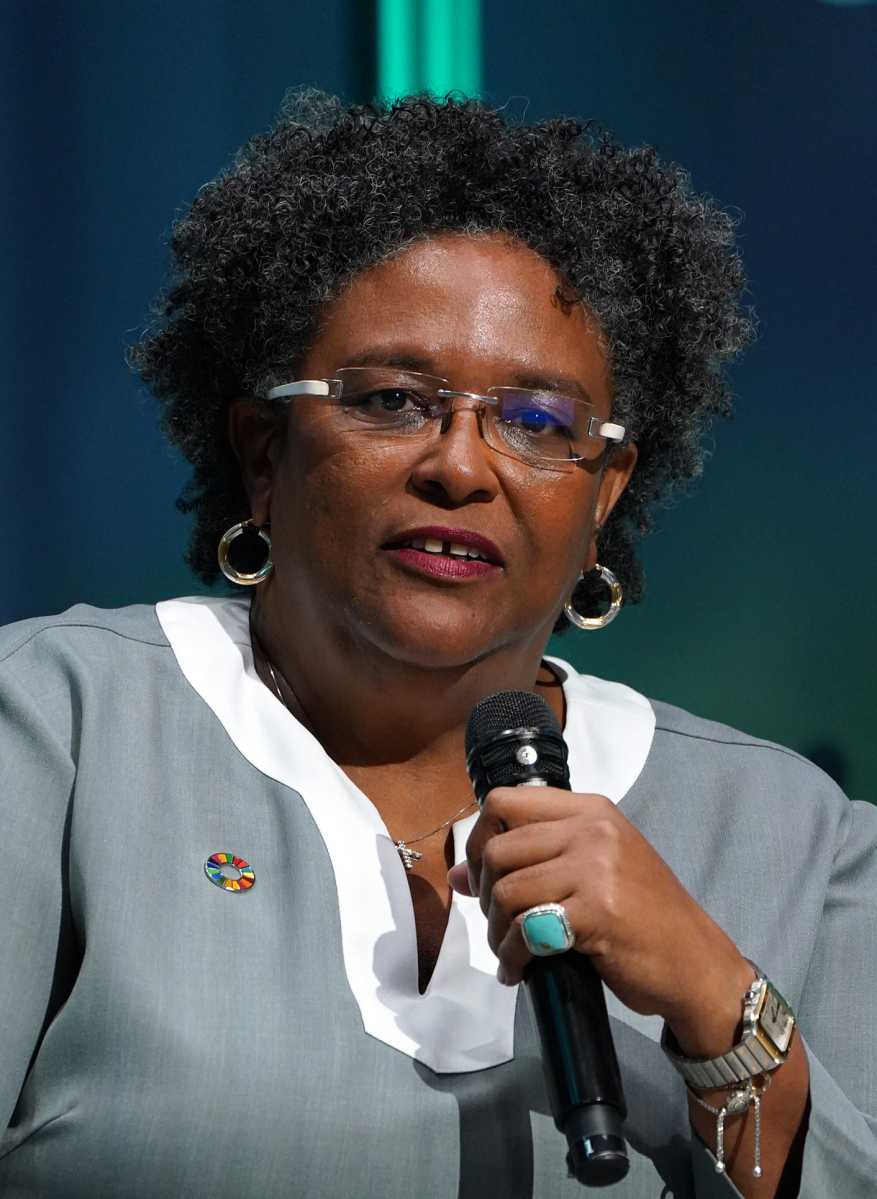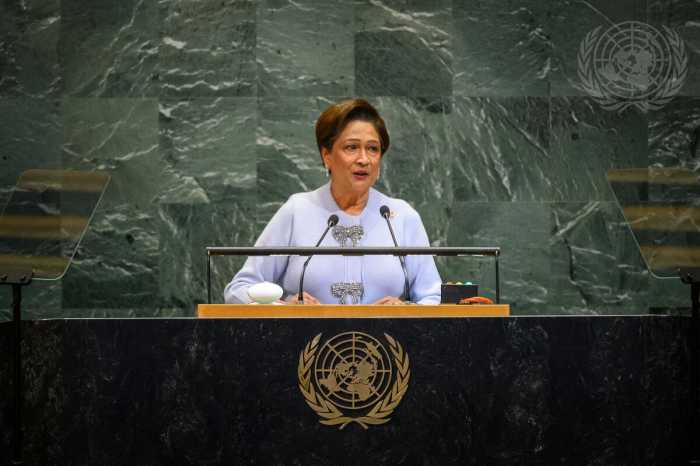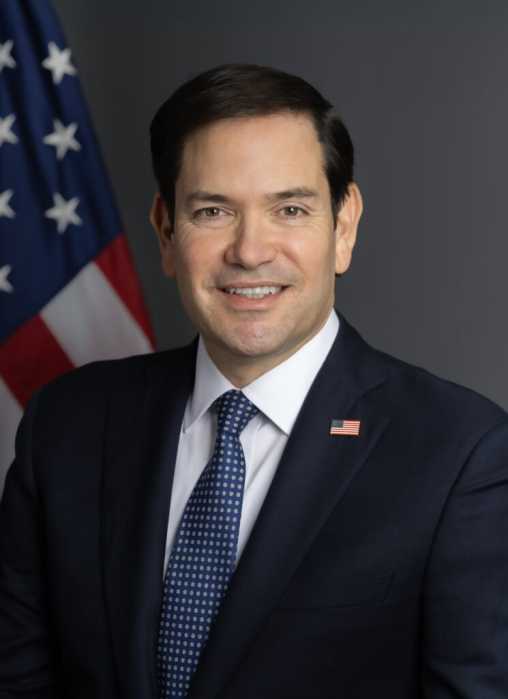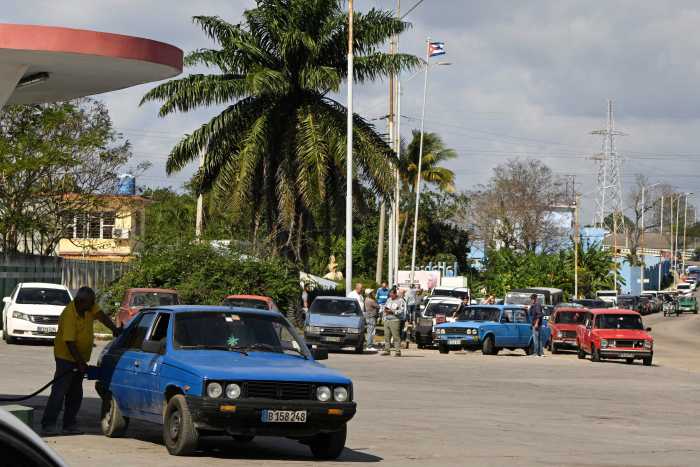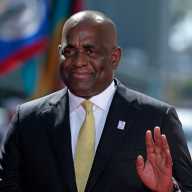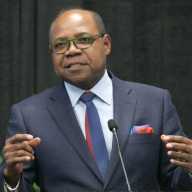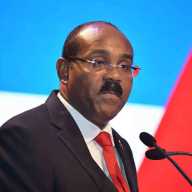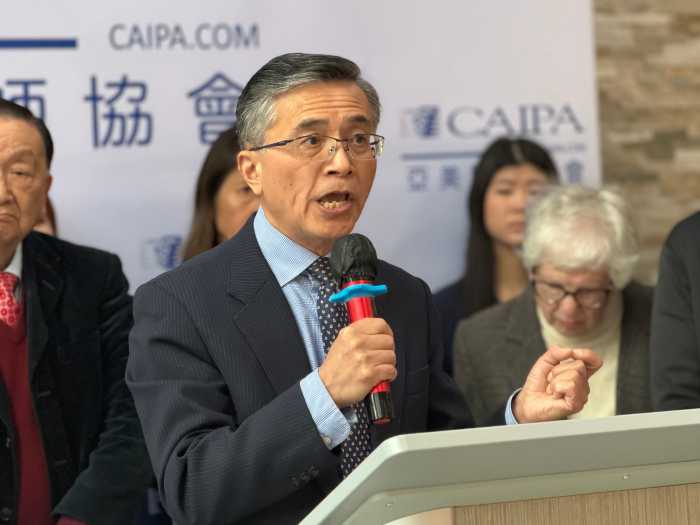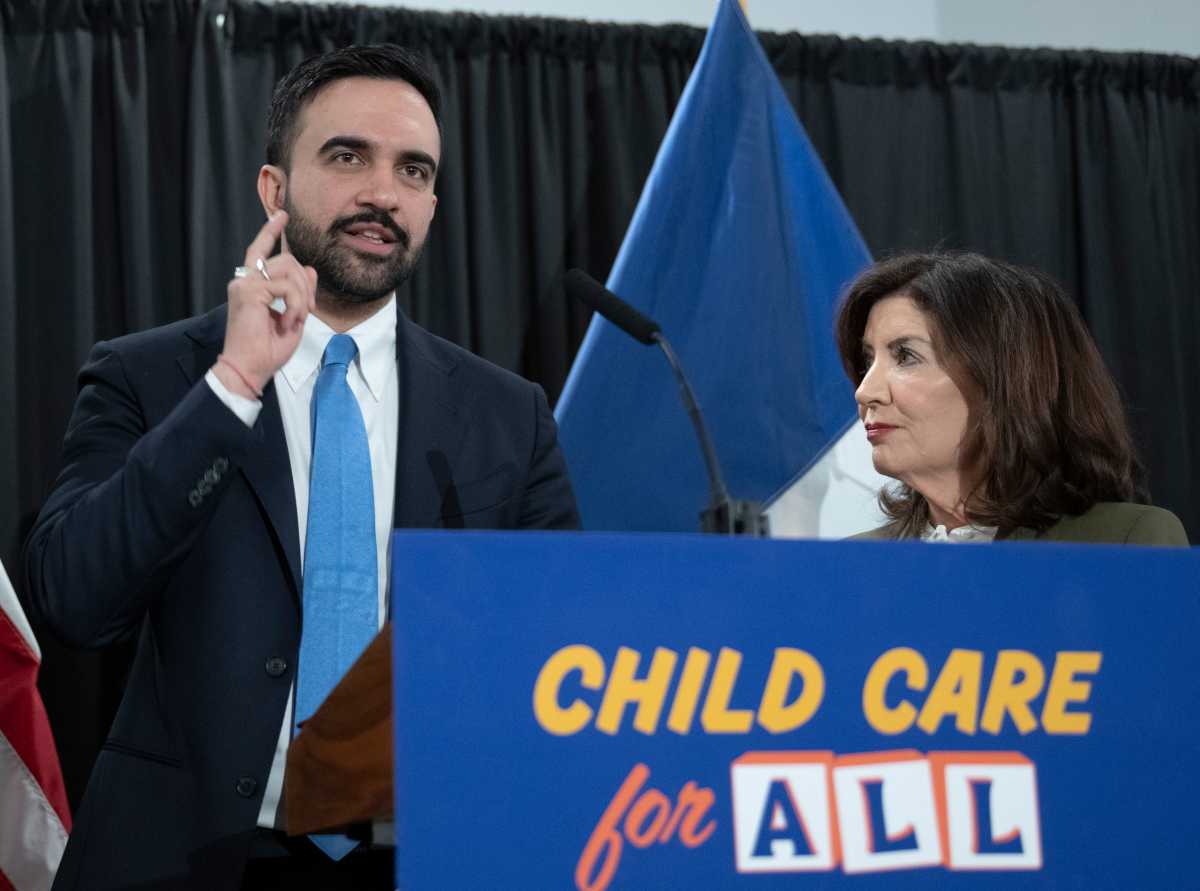Barbados
Prime Minister Mia Mottley recently announced she will lead the Barbados Labour Party (BLP) into the next general election.
Speaking at a BLP rally, Mottley told supporters that although she said in 2022 that the current term would be her last, the gravity of national and global challenges and the widespread appeals from citizens had compelled her to remain.
“In 2022, I told you that that would be my last time. I did so because I had just gone through…six or seven months of true stress,” Mottley said. “I came to understand that true leadership is never about comfort. It is about calling, it is about timing, and it is about service.”
Mottley told supporters that members had urged her to remain in leadership by members of her party, civil society, the private sector, the labor movement, constituents, and other citizens.
Citing the weight of global instability, from wars in Ukraine and Gaza to tensions in the Indo-Pacific and the climate crisis, Mottley said Barbados must not be left adrift amid turbulent times.
The Prime Minister also stressed that Barbados is still in a period of national transformation, which began when the BLP took office in 2018 and was also heavily focused on managing the COVID-19 pandemic.
“There is no doubt that the water is still choppy,” she said. “I came to the conclusion a few weeks ago that this is no longer a personal decision, but it is a decision of duty.”
She emphasized her commitment to improving the lives of citizens and continuing to lead a now seasoned team of ministers: “Everything I have done in public life has been to try to make the lives of Bajans better, to fight injustice…and to make this country the best that it can be.”
Mottley became Barbados’ first female prime minister in 2018, leading the BLP to a second consecutive win in 2022.
The next general election is constitutionally due by 2027.
Dominica
Prime Minister Roosevelt Skerrit defended the decision to introduce electoral reform, adding that the ruling Dominica Labour Party (DLP) would not allow opposition forces to “weaken” the country.
In a statement ahead of the DLP’s 70th anniversary on June 1, Skerrit said that the opposition forces now want to “pretend that they care more about democracy.”
“We started electoral reform. We brought in the international experts. We put money behind the process. We made it happen. So, do not let anyone twist the truth. We are not afraid of reform. We are ready for it. We invited it. But we will not allow confusion and lies to weaken this country,” Skerrit said.
In March, the Dominica Parliament approved electoral reform legislation. However, police fired teargas and rubber bullets at opposition supporters who claimed the government was not transparent enough in dealing with the matter.
The Dominica government submitted the three bills late last year: the Electoral Commission Bill 2024, the House of Assembly (Elections) Bill 2024, and the Registration of Electors Bill 2024. Parliament approved the legislation after it was reviewed by the relevant individuals and groups.
During the debate, opposition legislator Anthony Charles supported the measure, telling legislators that the issue of electoral reform has been an “ongoing debate ” for more than 17 years.
“I stand for the bills to be passed,” he said, adding, “We have to start somewhere; we have to give and take, and this is not about political parties showing how strong they are; this is not about the government flexing their muscle, this is about democracy.”
Guyana
President Irfaan Ali recently emphasized that Guyana will not “now or ever” surrender any part of the Essequibo to Venezuela, as Venezuela plans to hold elections in the disputed area.
Despite a recent ruling by the International Court of Justice (ICJ) that the South American country must cease conducting elections in the disputed territory currently under Guyanese control, Caracas is still proceeding with its election plans.
However, the Venezuelan government rejected the ICJ pronouncement, saying it does not recognize the court’s authority and that the court has no right to interfere in internal affairs.
Speaking to reporters, President Ali said Guyana is unprepared to give: “Not a square inch would be ceded, now or ever.”
Ali said that Guyana’s actions surrounding the border controversy are guided by three main pillars: diplomacy, support from the international community, and building the capacity of its defense system.
He told reporters that diplomacy continues to be important and that the country’s Ambassador to Venezuela, Dr. Richard Van West-Charles, has clear instructions.
“Our instructions to the Ambassador and the Embassy there is to ensure that Guyana’s sovereignty, territorial integrity, and our position is well-known to all stakeholders,” President Ali said.
Ali also welcomed a recent statement by the United States Ambassador to Guyana, Nicole Theriot, as she said that the US is prepared to support the Guyana Defence Force (GDF) in its efforts to combat the growing threat posed by foreign gangs along the Cuyuni River, a key stretch of the border between Guyana and Venezuela.
Haiti
The European Union is providing Haiti with a £9 million financing grant to improve the performance of the country’s General Customs Administration (AGD).
The financing agreement was signed on Tuesday, May 20, by the Haitian Minister of Economy and Finance, Alfred Metellus, and the European Union Ambassador to Haiti, Stefano Gatto.
The funding supports implementing the “Customs Revenue Increase and Combating Smuggling and Narcotics Plan (PARLUCOS),” developed by the AGD for 2023-2026.
It will also strengthen Customs’ capacity to combat smuggling, illegal drug, and arms trafficking, mobilize tax revenue, facilitate trade, and protect local businesses.
“We are aware of the major challenges facing us, particularly in the difficult security context the country is facing.
“However, the Haitian government is determined and resolutely focused on the future,” said Metellus.
“Reclaiming control of the border and non-border Customs offices is the fundamental objective to ensure the successful implementation of these reforms.
More than just an important step toward modernizing the customs administration, this action will be an essential contribution to the country’s peace, security, and stability…,” he added.
The authorities said that through the agreement, Haiti and the EU reaffirm their commitment to strengthening the country’s institutions and, therefore, promoting robust, sustainable, and inclusive economic development.
They said the agreement demonstrates confidence in the country’s ability to overcome current challenges.
Jamaica
The Bank of Jamaica’s (BOJ’s) Monetary Policy Committee (MPC) expects the initial impact of rising US tariffs on prices in Jamaica will be minimal.
“In assessing the near-term outlook, the Monetary Policy Committee contemplated the implications for the Jamaican economy of the policies that have been implemented by the US administration, to date, and in so doing looked at several scenarios.
From this exercise, the Bank believes that the first-round impact of the increase in US tariffs on prices in Jamaica will not be significant,” said BOJ Governor Richard Byles.
“We expect that the US Federal Reserve (the Fed) will respond appropriately, and we also anticipate slowing the pace of US economic growth. We note that the Fed maintained its interest rate target in the range of 4.25 to 4.50 % in the May 2025 meeting and is likely to continue to maintain rates for an extended period of time in 2025,” he said.
Byles pointed out, however, that while some consumer prices in Jamaica may rise due to higher US inflation, the impact of imported inflation on overall domestic price level increases will be largely offset by declining global oil prices.
“Higher inflation could stem from a sharper-than-anticipated increase in the tariff faced by trading partners of the US. In addition, domestic inflation could be higher than projected if there is a further escalation in geopolitical tensions, which could negatively impact international supply chains. Lower inflation could, however, result from lower-than-projected international commodity prices and weaker demand conditions,” he explained.
Consequently, the Governor said the MPC will continue closely monitoring domestic inflation expectations and any upward pressure on prices resulting from the evolving tariff landscape.
The Governor said the BOJ remains committed to managing and maintaining inflation at 4 to 6% and will do whatever is necessary to maintain stability in prices and the foreign exchange market.
St. Vincent and the Grenadines
St. Vincent’s Minister of Finance, Camillo Gonsalves, said, “There are more people employed in St. Vincent and the Grenadines today than at any point in the history of St. Vincent and the Grenadines since slavery.”
“We have that data. I would say that we have single digits, high single-digit unemployment in this country, and I would say that you probably have another low single-digit number of people who could work but don’t want to work,” he added.
Gonsalves said the economy was buoyant and that businesses had reported better performance this year through the Chamber of Industry and Commerce. There are also reports that employment is considerably up in St. Vincent and the Grenadines.
Gonsalves said that the government’s last “firm data” is from 2022, in which the unemployment rate was 10.8%, adding that this was before Sandals Resort’s opening and full operation.
“And it was before some other major construction projects were underway fully. We believe now that the unemployment number would be in single digits,” he said, adding that he was referring to the standard definition of unemployment.
Gonsalves said many contractors have complained to the government about finding workers.
He said this labor shortage affects the government’s ability to execute public infrastructure projects such as roads, bridges, and clinics.
Compiled by Devika Ragoonanan


